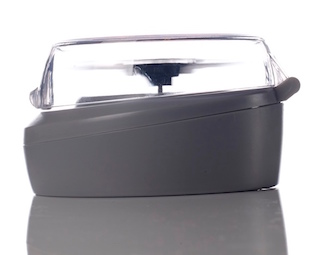 Sandstone Diagnostics has received FDA 510(k) clearance for its Trak system, an app-connected home test for male fertility. Trak's device aims to disrupt the current model for testing male fertility which is viewed by many as awkward and inconvenient. The device received over-the-counter clearance as a Class 2 medical device.
Sandstone Diagnostics has received FDA 510(k) clearance for its Trak system, an app-connected home test for male fertility. Trak's device aims to disrupt the current model for testing male fertility which is viewed by many as awkward and inconvenient. The device received over-the-counter clearance as a Class 2 medical device.
"This FDA clearance represents a monumental milestone for Sandstone Diagnostics as we prepare to launch Trak as a radically new approach to personal fertility management,” Sandstone CEO Greg Sommer said in a statement. “Male infertility is a dramatically under-appreciated condition affecting millions of couples every year. Trak is a complete system that not only gives couples the ability to conveniently measure semen quality at home, but also provides digital health tools and population-based data to help men take charge of their reproductive health in a whole new way.”
The device itself uses a centrifuge to isolate sperm cells in specially designed cartridges. It then sends results to a smartphone app that will tell the user whether their sperm count is low, moderate, or optimal, based on World Health Organization guidelines. The app not only informs the user of their sperm count, but allows them to compare it to population averages based on aggregated data from users and gives personalized feedback on wellness and lifestyle steps that might help improve their numbers.
“This is a game changer for men’s health,” Dr. Michael Eisenberg, director of Male Reproductive Health and Surgery at Stanford University Medical Center and Medical Advisor to Sandstone, said in a statement. “Sperm count provides a window into a man’s overall health and it’s very exciting to see a technology that lowers the barrier for men to get tested, see changes and address fertility concerns. I believe with the convenience and availability of in-home testing, we are poised to improve our understanding of male fertility and empower men to better manage their health.”
The company plans to launch Trak in October 2016. A free iOS and Android app, which includes all the promised features, but currently requires users to manually enter their sperm count, has been available since last year.
Sandstone has been working on its platform for at least two years. Sommer demoed the technology at Health 2.0 in 2013. At the time, they revealed they were funded in part by a $150,000 NIH grant.
















